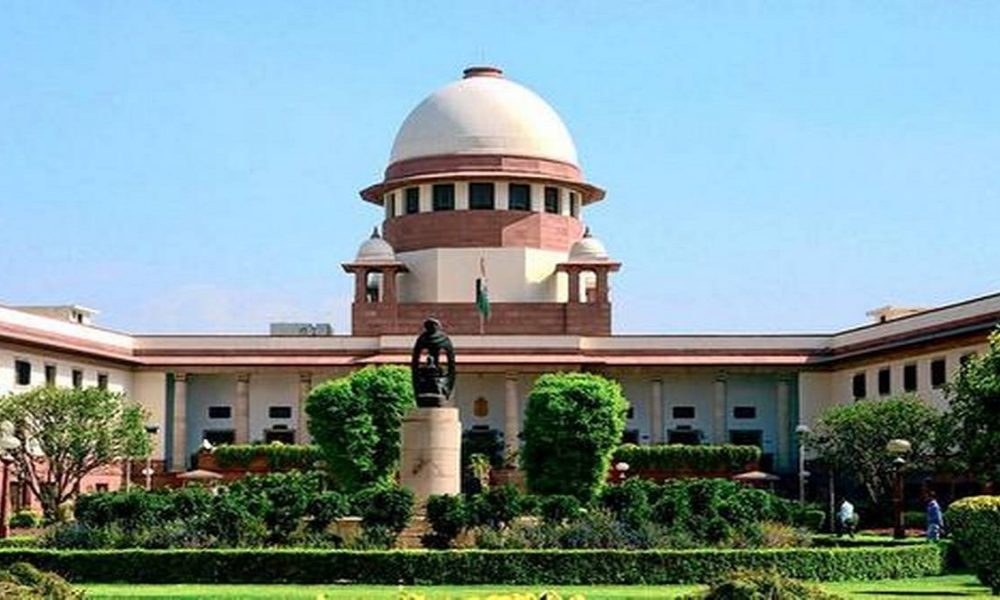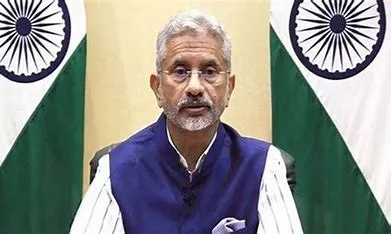In India, the constitutional jurisprudence of ‘right to be forgotten’ (RTBF) has witnessed development through various judicial precedents and orders delivered by Hon’ble High Courts. Recently, for the first time in Indian history, the Hon’ble Supreme Court of India in a special leave petition (SLP) in XXXX vs. Kancherla Durga Prasad and Others, Misc. App. No. 875/2022 in S.L.P. (Crl.) No. 3211/2022 (Supreme Court of India) (India) (“KDP Case”), had heard a petitioner who sought to mask their identity. The Supreme Court Division-Bench comprised of Hon’ble Mr. Justice Sanjay Kishan Kaul and Hon’ble Mr. Justice M.M. Sundaresh.
In this article, I shall briefly dissect the KDP Case. Thereafter, I will mention the various High Court precedents relating to the RTBF which were not discussed by the order in the KDP Case. Lastly, I will argue that RTBF can be theorised to be a conception of multiple constitutional values, with each conception significantly varying in nature, form and application.
BACKGROUND OF THE KDP CASE:
In this case, a woman (whose identity is anonymous) had highlighted concerns over the display of her name in the public domain online. As recorded by the Supreme Court, she was a victim of sexual offences and offences committed against modesty of a woman. Notably, the petitioner is mentioned in case name as ‘XXXX’, which implies that the Supreme Court has directed to mask or conceal her identity from public view. Because of the offences committed on her, she had contracted a sexually transmitted disease, which caused her immense loss by way of social stigma and infringement of her personal privacy.
Moving forward, she claimed that if the name of the first respondent in the case appears anywhere on the public domain (presumably on an online platform or search engines), it causes her identity to be publicly revealed (likely owing to mention of her identity or personal information/data that can be used to link the incident back to her). Consequently, she sought a direction from the Supreme Court to mask or remove any mention of her identity as well as the first respondent’s identity (including the address, identification details and case numbers) to the extent that they are not visible for ‘search engines’ (e.g. Google, Bing or Yahoo). She sought this relief under the RTBF or ‘right to erasure’ (a different name for the same right, i.e. RTBF) as a facet of her fundamental right to privacy.
SUPREME COURT’S ORDER:
After hearing the case, the Supreme Court directed its Registry to examine the petitioner’s issue in the present case within a span of three weeks and thereafter work out a way through which name of both the petitioner as well as the first respondent could be masked, in order to ensure that they do not appear visible for any search engine.
Consequently, it appears that the Supreme Court has accepted the anonymous woman’s request and through its Registry is working on a solution to pragmatically deal with it on the administrative side prior to the next hearing. Implicitly, this means that the Supreme Court in the KDP Case has recognised RTBF or a right to erasure as a part of the fundamental right to privacy, first recognised by the Nine-Judge Bench Supreme Court precedent in K.S. Puttaswamy vs. Union of India, (2017) 10 SCC 1 (“Puttaswamy Decision”). This is a tremendous progress for the RTBF and the fundamental right to privacy, which had so far witnessed conflicting development through various High Court precedents in India.
PREVIOUS RTBF CASES DECIDED BY HIGH COURTS:
Previously, in The Daily Guardian article dated 1 June 2021, I had covered the Delhi High Court’s RTBF order in Jorawar Singh Mundy vs. Union of India and Ors., 2021 SCC OnLine Del 2306. In the same article, I had summarily covered the following High Court decisions which were rendered prior to the Supreme Court’s Puttaswamy Decision: first, the Gujarat High Court decision in Dharmraj Bhanushankar Dave vs. State of Gujarat (Citation: S.C.A. No. 1854/2015); second, the Karnataka High Court decision in [Identity Retracted] vs. Registrar General (Citation: 2017 SCC OnLine Kar 424); and third, the Madras High Court decision in Madras High Court, The Registrar (Judicial) vs. The Secretary To Government, (Citation: Suo Motu W.P. (MD) No. 16668/2017).
Moreover, in the above-mentioned article, I had also covered the Delhi High Court decision in Zulfiqar A. Khan vs. Quintillion Businessman Media Pvt. Ltd. & Ors., (Citation: 2019 SCC OnLine Del 8494) (“Zulfiqar Case”) and the High Court of Orissa decision in Subhranshu Rout vs. State of Odisha (Citation: 2020 SCC OnLine Ori 878); which recognised a RTBF after the Puttaswamy decision was rendered. Importantly, the High Court of Orissa decision was noted to be an ‘obiter’, since its observations were made in a bail order.
Thereafter, in 31 July 2021 and 16 August 2021 issues of The Daily Guardian, I had covered the Madras High Court case in Karthick Theodre vs. The Registrar General, Madras High Court, Chennai and Ors., 2021 SCC OnLine Mad 2755, where while initially finding that a RTBF exists against court orders and judgments, the High Court later reached the opposite view that there can in fact exist no RTBF against court orders or judgments. On 10 September 2021 issue of The Daily Guardian, I had covered an anonymous interim order in CS(OS) 392/2021, I.As.10543-10546/2021 (“Third RTBF Case”) by a Single-Judge bench of the Delhi High Court. Surprisingly, the Supreme Court in its order in the KDP Case did not refer to any of the above-mentioned High Court precedents or attempt to reconcile certain conflicting views in some of these precedents.
THEORISING RTBF IN INDIA UNDER VARIOUS CONSTITUTIONAL VALUES: A SOLUTION TO ADDRESS ‘CONCEPTUAL BANKRUPTCY’
In a previous article published in Volume 10(2), International Journal of Law and Policy Review (IJLPR), West Bengal National University of Juridical Sciences (WBNUJS), Kolkata (2021) at pp. 152-203, I had extensively analysed the RTBF in the European Union (EU) including a comparative analysis with the development of RTBF in India. I had also argued that RTBF in the EU could be conceptualised as an ‘independent right’ (though this would be difficult owing to ‘theoretical indeterminacy’ of RTBF vis-à-vis the right to privacy), or alternatively, it could be viewed as a conception of different constitutional values such as ‘privacy’, ‘autonomy’ (and ‘control-based’ theory of privacy), or ‘dignity’.
In the context of the Indian jurisdiction, the Supreme Court order in the KDP Case as well as prior precedents by various High Courts that did recognise a RTBF have always discussed the RTBF as a facet of the fundamental right to privacy. Importantly, it is to be pointed out that while the Puttaswamy Decision did unanimously declare the right to privacy as a fundamental right protected by the Constitution, most particularly under Article 21 (fundamental right to life and personal liberty), none of the six independent opinions by the Hon’ble Judges did recognise a RTBF as a part of the fundamental right to privacy. Subsequent judgments rendered by various High Courts on the RTBF have likewise have failed to properly develop the RTBP in order to both enable its pragmatic application and to create an environment for balancing of RTBF against competing fundamental rights of other individuals as well as state interests and greater public’s interests.
The Delhi High Court precedent in the Zulfiqar Case is an example, where the High Court failed to balance the fundamental rights of victim of alleged sexual offences and the general public against those of the accused who received a favourable RTBF order until the (then) pending case against him was to be adjudicated. The Supreme Court’s Order in the KDP Case as well as the anonymous interim order in the Third RTBF Case of the Delhi High Court stand in stark contrast to the order in Zulfiqar Case as they both protected and upheld the privacy and dignity of women.
Consequently, it is clear that the Higher Judiciary (i.e. the Supreme Court and Delhi High Court) need to properly lay down the contours of what a RTBF constitute (when considering it as a facet of ‘privacy’) as well as define the standards which are applicable when pragmatically granting RTBF orders, along with balancing of such a right against competing rights and interests. In this vein, it would be beneficial if the constitutional courts in India consider conceptualising the RTBF as an independent right (potentially a right separate from right to privacy, but similarly grounded in the fundamental right to life and personal liberty under Article 21), or alternatively, attempt to derive conceptions of RTBF from the lens of a different constitutional value such as autonomy, dignity or liberty.
CONCLUDING REMARKS:
There is no shadow of a doubt that the Supreme Court order in the KDP Case is highly applaudable. It is beneficial for not only victims of sexual offences, but concomitantly progressive for individuals who suffer from sexually transmitted diseases and other disabilities for which they regrettably suffer stigmatisation from the society and loss of reputation (especially like the petitioner in the KDP Case, who suffer for no fault of their own). This order will ultimately enable the petitioner to eventually get her name and the identity of the first respondent masked from search platforms such as Google or Bing, although it is unlikely that the first respondent’s name will be masked from various court records and orders. Their identities would likewise still be accessible in online legal databases owned by private entities such as SCCOnline, Manupatra and Westlaw India, though they are not freely accessible by the general public and are ordinarily utilised by legal professionals, judges, academics, university students and journalists.
While the KDP Case is a great step forward, it is important for us to bear in mind that there is indeed a ‘conceptual bankruptcy’ when it comes to laying down the contours of a RTBF in India and its pragmatic application in real-life cases. It is my hope that in the due course of time, a constitutional court will take up the mammoth task of defining the RTBF in the Indian constitutional jurisprudence; develop a proper standard to apply the RTBF and balance it against competing rights and interests; and potentially conceptualise RTBF as an independent right or as a facet of constitutional values other than privacy, in order to best develop it for the Indian constitutional jurisprudence.
Anujay Shrivastava is an incoming LLM Candidate (2022-23) at the University of Cambridge and an Advocate (India-qualified).
The Delhi High Court precedent in the Zulfiqar Case is an example, where the High Court failed to balance the fundamental rights of victim of alleged sexual offences and the general public against those of the accused who received a favourable RTBF order until the (then) pending case against him was to be adjudicated. The Supreme Court’s Order in the KDP Case as well as the anonymous interim order in the Third RTBF Case of the Delhi High Court stand in stark contrast to the order in Zulfiqar Case as they both protected and upheld the privacy and dignity of women.























